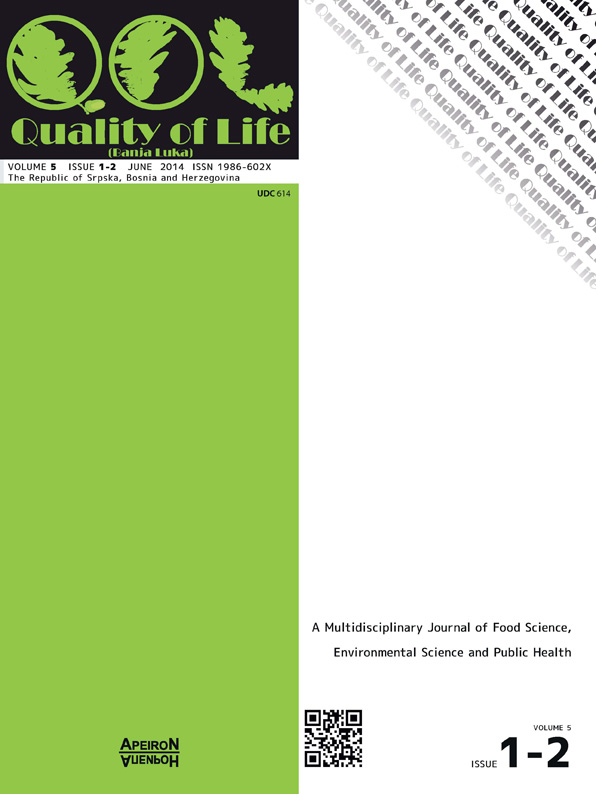Influence of Heat Treatment Process on the Acceptability of Pasteurized Beetroot
DOI:
https://doi.org/10.7251/QOL1401039VAbstract
Abstract: A heat-treated beet is defined as a food that is subject to a temperature, high enough to destroy microorganisms and to preserve all the nutrients. The aim of the study presented in this paper was to investigate the effect by cooking on the properties of heat threated beetroot in the temperature range between 75 °C and 115 °C during the 40, 50 and 60 minutes of cooking. In order to determine the optimal conditions for the implementation of various heat treatment procedures consequently, was followed the influence of heat treatment conditions (temperature/time) on the composition, rheological properties, pH, color change (L*, a*, b*) and sensory characteristics during the development of the “pasteurized/sterilized” beet product. This study has shown that the optimum time and temperature for processing of beetroot is 105 °C at 50 minutes. Samples of beetroot, processed under these conditions had the best softness, the most acceptable taste and color (sensory and instrumentally determined).Downloads
Published
2014-06-23
Issue
Section
Чланци
